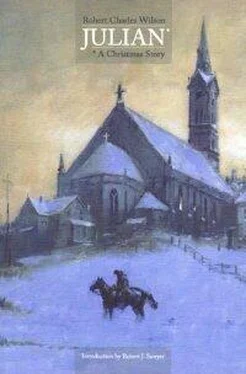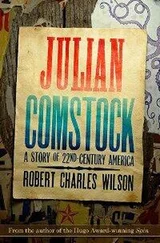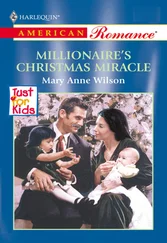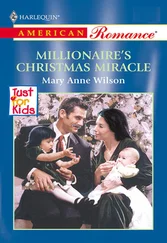But he had no advice to offer me tonight. He looked like a hunted man who has come to the end of a cul-de-sac, and can neither go forward nor turn back.
I went to my bedroom, although I doubted I would be able to sleep. Instead—without any real plan in mind—I bundled a few of my possessions for easy carrying. My squirrel-gun, chiefly, and some notes and writing, and THE HISTORY OF MANKIND IN SPACE; and I thought I should add some salted pork, or something of that nature, but I resolved to wait until later, so my mother wouldn’t see me packing.
* * *
Before dawn, I put on several layers of clothing and a heavy pakool hat, rolled down so the wool covered my ears. I opened the window of my room and clambered over the sill and closed the glass behind me, after I had retrieved my rifle and gear. Then I crept across the open yard to the barn, and saddled up a horse (the gelding named Rapture, who was the fastest, though this would leave my father’s rig an animal shy), and rode out under a sky that had just begun to show first light. Last night’s brief snowfall still covered the ground. I was not the first up this winter morning, and the cold air already smelled of Christmas. The bakery in Williams Ford was busy making nativity cakes and cinnamon buns. The sweet, yeasty smell filled the northwest end of town like an intoxicating fog, for there was no wind to carry it away. The day was dawning blue and still.
Signs of Christmas were everywhere—as they ought to be, for today was the Eve of that universal holiday—but so was evidence of the conscription drive. The Reservists were already awake, passing like shadows in their scruffy uniforms, and a crowd of them had gathered by the hardware store. They had hung out a faded flag and posted a sign, which I could not read, because I was determined to keep a distance between myself and the soldiers; but I knew a recruiting-post when I saw one. I did not doubt that the main ways in and out of town had been put under close observation. I took a back way to the Estate, the same riverside road Julian and I had traveled the night before. Because of the lack of wind, our tracks were undisturbed. We were the only ones who had recently passed this way. Rapture was revisiting his own hoof-prints.
Close to the Estate, but still within a concealing grove of pines, I lashed the horse to a sapling and proceeded on foot.
The Duncan-Crowley Estate was not fenced, for there was no real demarcation of its boundaries; under the Leasing System, everything in Williams Ford was owned (in the legal sense) by the two great families. I approached from the western side, which was half-wooded and used by the aristos for casual riding and hunting. This morning the copse was not inhabited, and I saw no one until I had passed the snow-mounded hedges which marked the beginning of the formal gardens. Here, in summer, apple and cherry trees blossomed and produced fruit; flowerbeds gave forth symphonies of color and scent; bees nursed in languid ecstasies. But now it was barren, the paths quilted with snow, and there was no one visible but the senior groundskeeper, sweeping the wooden portico of the nearest of the Estate’s several Great Houses.
The Houses were dressed for Christmas. Christmas was a grander event at the Estate than in the town proper, as might be expected. The winter population of the Duncan-Crowley Estate was not as large as its summer population, but there was still a number of both families, plus whatever cousins and hangers-on had elected to hibernate over the cold season. Sam Godwin, as Julian’s tutor, was not permitted to sleep in either of the two most luxurious buildings, but bunked among the elite staff in a white-pillared house that would have passed for a mansion anywhere but here. This was where he had conducted classes for Julian and me, and I knew the building intimately. It, too, was dressed for Christmas; a holly wreath hung on the door; pine boughs were suspended over the lintels; a Banner of the Cross dangled from the eaves. The door was not locked, and I let myself in quietly. It was still early in the morning, at least as the aristos and their elite helpers calculated time. The tiled entranceway was empty and still. I went straight for the rooms where Sam Godwin slept and conducted his classes, down an oaken corridor lit only by the dawn filtering through a window at the long end. The floor was carpeted and gave no sound, though my shoes left damp footprints behind me. At Sam’s particular door, I was confronted with a dilemma. I could not knock, for fear of alerting others. My mission as I saw it was to deliver Julian’s message as discreetly as possible. But neither could I walk in on a sleeping man—could I?
I tried the handle of the door. It moved freely. I opened the door a fraction of an inch, meaning to whisper, “Sam?”—and give him some warning.
But I could hear Sam’s voice, low and muttering, as if he were talking to himself. I listened more closely. The words seemed strange. He was speaking in a guttural language, not English. Perhaps he wasn’t alone. It was too late to back away, however, so I decided to brazen it out. I opened the door entirely and stepped inside, saying, “Sam! It’s me, Adam. I have a message from Julian—” I stopped short, alarmed by what I saw. Sam Godwin—the same gruff but familiar Sam who had taught me the rudiments of history and geography—was practicing black magic , or some other form of witchcraft: on Christmas Eve! He wore a striped cowl about his shoulders, and leather lacings on his arm, and a boxlike implement strapped to his forehead; and his hands were upraised over an arrangement of nine candles mounted in a brass holder that appeared to have been scavenged from some ancient Tip. The invocation he had been murmuring seemed to echo through the room: Bah- rook -a- tah -atten- eye -hello- hey -noo…
My jaw dropped.
“Adam!” Sam said, almost as startled as I was, and he quickly pulled the shawl from his back and began to unlace his various unholy riggings.
This was so irregular I could barely comprehend it.
Then I was afraid I did comprehend it. Often enough in Dominion school I had heard Ben Kreel speak about the vices and wickedness of the Secular Era, some of which still lingered, he said, in the cities of the East—irreverence, irreligiosity, skepticism, occultism, depravity. And I thought of the ideas I had so casually imbibed from Julian and (indirectly) from Sam, some of which I had even begun to believe: Einsteinism, Darwinism, space travel… had I been seduced by the outrunners of some New Yorkish paganism? Had I been duped by Philosophy?
“A message,” Sam said, concealing his heathenish gear, “what message? Where is Julian?” But I could not stay. I fled the room.
Sam barreled out of the house after me. I was fast, but he was long-legged and conditioned by his military career, strong for all his forty-odd years, and he caught me in the winter gardens—tackled me from behind. I kicked and tried to pull away, but he pinned my shoulders.
“Adam, for God’s sake, settle down!” cried he. That was impudent, I thought, invoking God, him —but then he said, “Don’t you understand what you saw? I am a Jew!” A Jew!
Of course, I had heard of Jews. They lived in the Bible, and in New York City. Their equivocal relationship with Our Savior had won them opprobrium down the ages, and they were not approved of by the Dominion. But I had never seen a living Jew in the flesh—to my knowledge—and I was astonished by the idea that Sam had been one all along: invisibly , so to speak.
“You deceived everyone, then!” I said.
“I never claimed to be a Christian! I never spoke of it at all. But what does it matter? You said you had a message from Julian—give it to me, damn you! Where is he?”
Читать дальше












